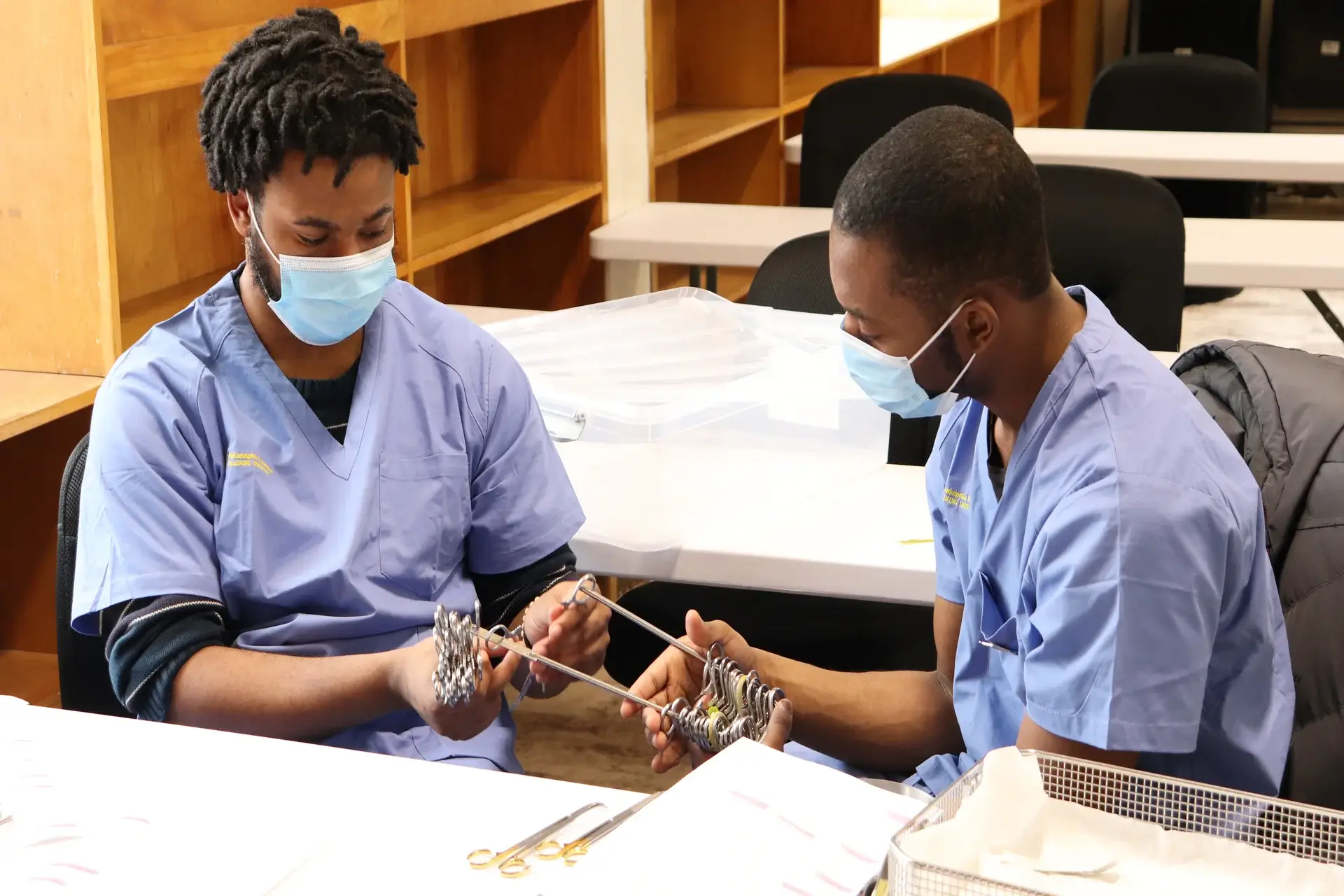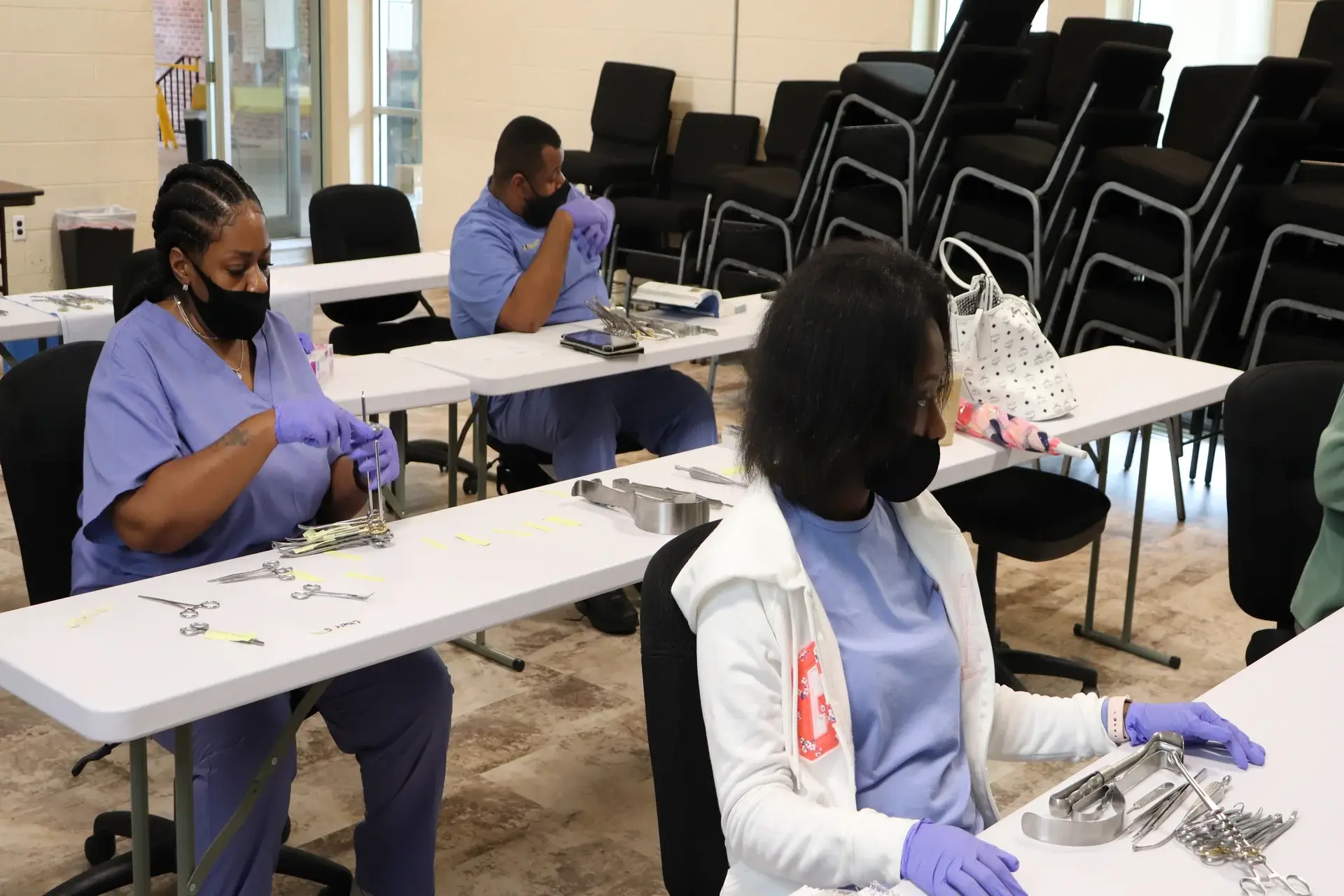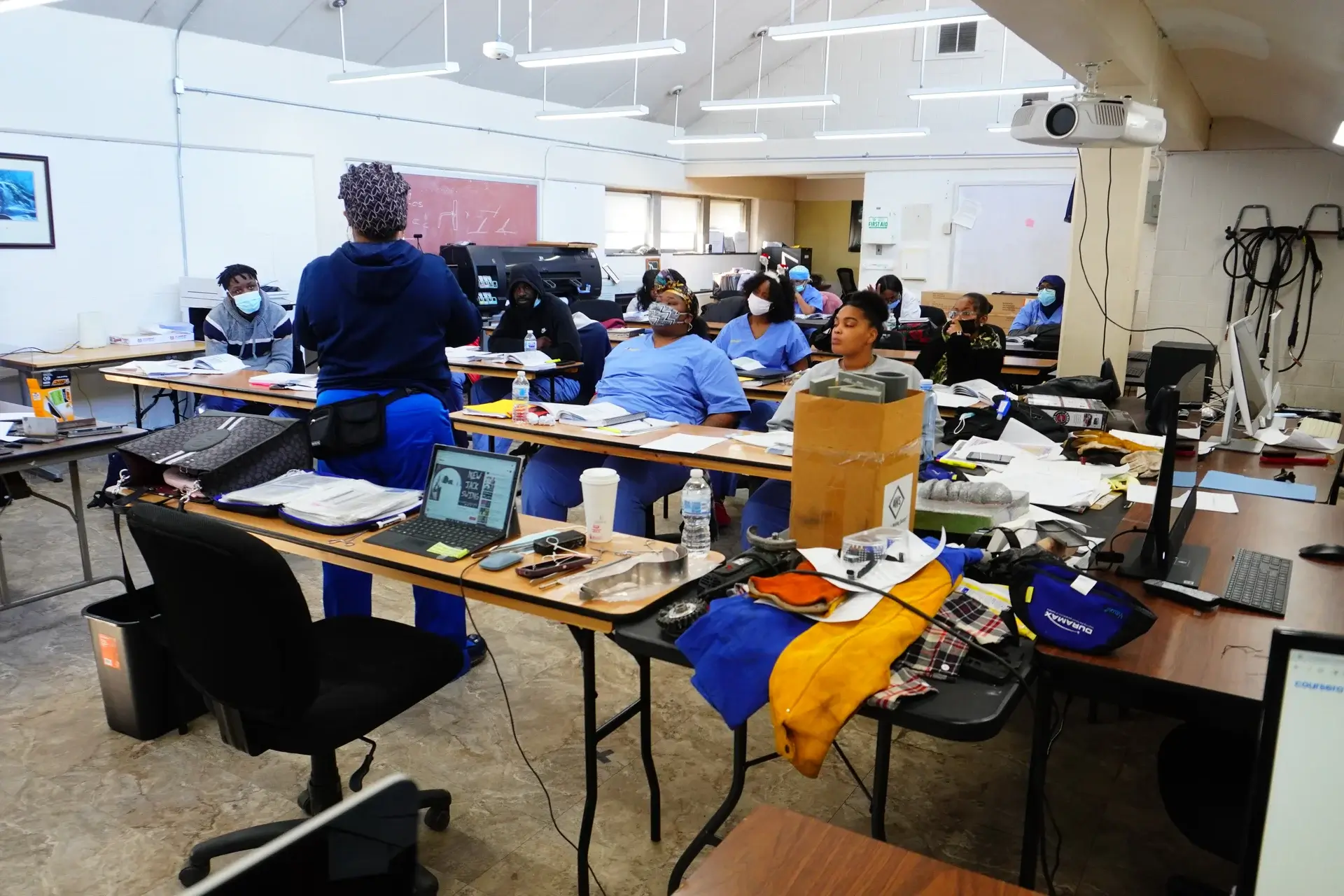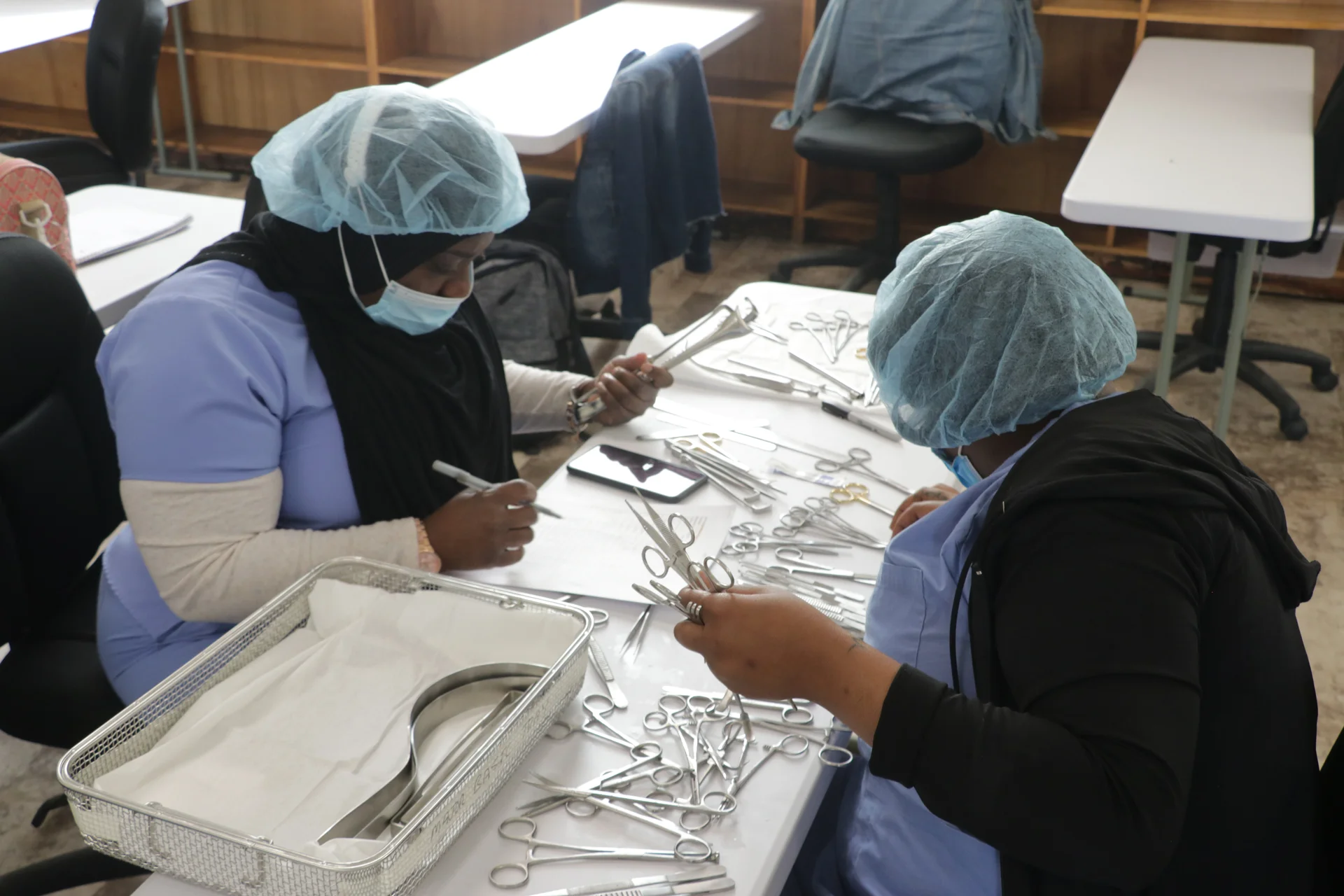Why Does A Sterile Proces...
A sterile processing technician is accountable to manually sterilize the device and equipment used during a surgery. Sterile technicians are also liable to examine and monitor certain articles, like autoclaves and ensure that the devices used in a healthcare centre work properly. A sterile processing technician plays a crucial role in the successful completion of a patient’s surgery.
In order to bring a surgery knock on the doors of success, a sterile technician’s job is unavoidable. Their role is a crucial one and needs an adequate amount of training to gain all the necessary expertise and skills needed for the profession.
What Does A Sterile Technician Do?
Before looking into why an on-the job training is essential for a sterile technician, it is utmost important to understand what they need the training for, what do they exactly do that requires so much of perfection that only a real-world training could lend? Let’s get straight into that.
If any device is doubted to malfunction, a sterile technician’s responsibility is to report the issues to the doctors or seek their alternates. Sterile technicians are liable for inventory control for all types of articles used in an operation theatre.
They lay out the surgical gloves and garments before each operational protocol. Sterile processing technicians perform crucial functions that can lead to the completion of a crucial operational procedure.
Because of their inevitable presence behind the crucial operations, sterile processing technicians should get shown up with the most fertile method to clean, sterilize, and inspect medical equipment. Sterile processing technicians are also anticipated to have cleared courses in microbiology, medical terminology, and disease control.

Why Does Training Matter?
Growth Of A Sterile Technician
Training from a recognized and experienced organization is crucial for the growth of a Sterile tech. Professionally and personally, the passing of a training program successfully, makes better sterile processing technicians who are more able to provide adequate care to patients.
Certified training builds the technician’s pride in his/her work, helps to augment his/her hands-on training with their technical knowledge, and improves the Sterile Processing technician department’s status of professionalism. This elevates their position in the patient care continuum.
Well-Educated Technicians
The ultimate goal of this education, as demonstrated in a training program, is patient’s safety. Well-educated sterile technicians know and follow the best practices to clean and sterilize instruments for medical surgeries and clinical treatments – that unequivocally leads to the best outcomes for patients.
Getting Acquainted With Theories
Training enhances hands-on skills of a central service technician. Certified healthcare establishments provide extensive training to their sterile processing technicians. Orientation and hands-on training can last for several weeks, pivoting on the variety of work needed to be accomplished by the technicians. Along with hands-on expertise, training provides time to get acquainted with the theories on which their daily work is based.
Getting To Know The Technical World
It is not enough to know what and when to press to turn on the sterilizer; to be most efficient, the sterile processing technician must also know what the sterilization parameters stand for and why sterilization of instruments is done, the way it is done. Education is crucial and so is having the sterilized instruments available for the doctors to perform crucial medical procedures!
Experienced educators on a training program recognize this fact, and endeavor to find an equilibrium for the best outcomes for patients. Sterile processing techs must receive their education along with their practical expertise before joining any healthcare facility in order to get certified for their job.
Feeling Of Professionalism
Training cultivates a feeling of professionalism in sterile technicians. Most healthcare facilities’ employees have entered into their career through education, both theoretical and practical. Those without schooling or training might encounter a feeling of inferiority while interacting with other members of the healthcare facility. This need not be! Sterile Processing
Technicians who have undergone rigorous training required for certification are always on comparable footing, in regard to their profession, with other the nurses and workers they encounter daily.
Certification training provides theory the way to meet the best practices in the real world of a sterile technician. Skills received without knowledge of the theory behind the work makes them less capable of dealing with the real world challenges.
Becoming Ready For Patient Centered Occupation
They tend to be less competent in speaking about the significance of their daily processes and how their work directly influences the value of life of every patient. Certification training makes sterile process technicians ready for the patient-centered occupation that they serve. It also balances their job with the essentials of making the technician understand how to perform their day-to-day duties.

Endnotes
Training helps introduce the technician to a broader world. Lacking direct contact with patients, naturally, sterile techs can feel isolated. Training helps them feel their place as high-level care providers to patients. Training exposes sterile processing technicians to a broader world and helps them to interpret their role in patient care repeatedly.
Tags: central service technician, Sterile processing techs, Sterile tech, Sterile technician, Sterile technicians
